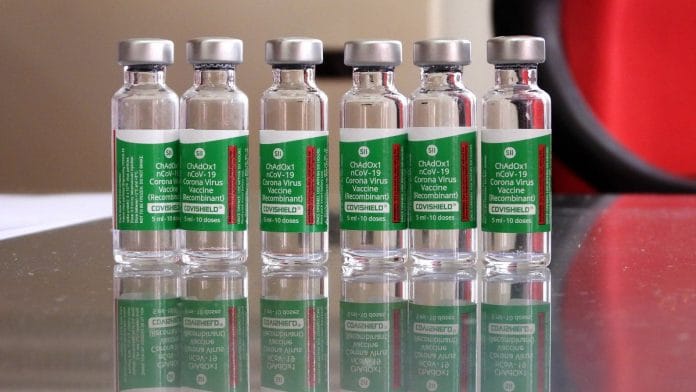London: The protection offered by the Oxford-Astra Zeneca COVID-19 vaccine declines after three months of receiving two doses of the preventive, according to a study published in The Lancet journal.
The findings drawn from datasets in Brazil and Scotland suggest that booster programmes are needed to help maintain protection from severe disease in those vaccinated with AstraZeneca, known as Covishield in India.
The researchers analysed data for two million people in Scotland and 42 million people in Brazil who had been vaccinated with the AstraZeneca vaccine.
In Scotland, when compared with two weeks after receiving a second dose, there was approximately a fivefold increase in the chance of being hospitalised or dying from COVID-19 nearly five months after being double vaccinated, the researchers said.
The decline in effectiveness begins to first appear at around three months, when the risk of hospitalisation and death is double that of two weeks after the second dose, they said.
The researchers from Scotland and Brazil found that the risk of hospitalisation and death increases threefold just short of four months after the second vaccine dose. Similar numbers were seen for Brazil, they said.
“Vaccines have been a key tool in fighting the pandemic, but waning in their effectiveness has been a concern for a while,” said Professor Aziz Sheikh, from the University of Edinburgh, UK.
“By identifying when waning first starts to occur in the Oxford-AstraZeneca vaccine, it should be possible for governments to design booster programmes that can ensure maximum protection is maintained, Sheikh said.
The team was able to compare data between Scotland and Brazil as they had a similar interval between doses — 12 weeks — and initial prioritisation of who was vaccinated — people at highest risk of severe disease and healthcare workers.
The dominant variant was different in each country during the study period — Delta in Scotland and Gamma in Brazil.
This means the decline in effectiveness is likely because of vaccine waning and the impact of variants, according to the researchers.
The study also estimated vaccine effectiveness at similar fortnightly intervals by comparing outcomes of people who have been jabbed with those who are unvaccinated.
However, the experts warned that these figures should be treated with caution because it is becoming harder to compare unvaccinated people to those vaccinated with similar characteristics, particularly among older age groups where so many people are now vaccinated.
“Our analyses of national datasets from both Scotland and Brazil suggest that there is considerable waning of effectiveness for the Oxford AstraZeneca vaccine, with protection against severe COVID-19 falling over time,” said Professor Srinivasa Vittal Katikireddi from the University of Glasgow in the UK.
“Our work highlights the importance of getting boosters, even if you’ve had two doses of the Oxford AstraZeneca vaccine, as soon as you are able to,” Katikiredd added.
Also read: No evidence to suggest existing vaccines don’t work on Omicron variant, Modi govt tells RS






